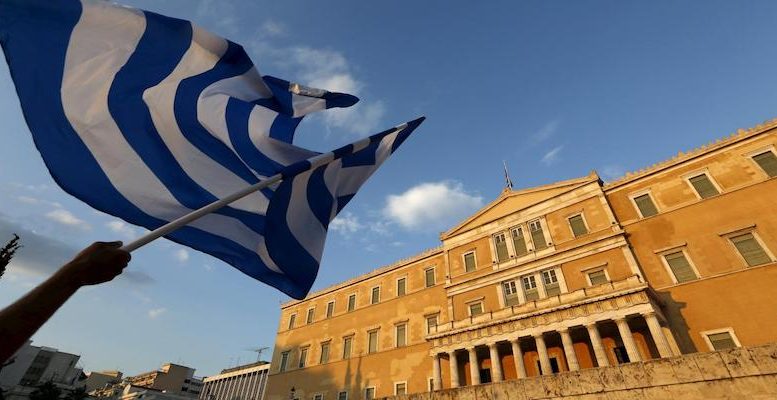Yannis Mouzakis (Macropolis) | In a recent opinion poll by MRB, those surveyed were asked who they would like to see as next Greek President if the incumbent, Prokopis Pavlopoulos is not awarded a second term. Twenty-six percent said they would like to see former prime minister Kostas Karamanlis be appointed Greece’s new head of state.
This is the man who fell asleep at the wheel when the global financial crisis hit in 2008. He famously claimed at the time that the Greek economy was “fortified” against shocks even though it had a mass of debt to rollover during the next years. In this fraught environment in 2009, he allowed his government’s fiscal performance to collapse and presented a falsified picture to Greece’s European partners, overseeing a catastrophic end to the previous decade for Greece and the sowing of the seeds for a tumultuous decade that is just coming to an end.
If anyone is looking for signs of whether Greek society is emerging from this experience any wiser, the fact that one in four Greeks is even considering the prime minister of the 2004–2009 as a suitable candidate for the presidency is a huge disappointment and does not bode well for the future. It suggests that many Greeks are not willing to punish the populism and political irresponsibility that has cost their country so dearly over the last decade.
The birth of antimnimonio
As early as the spring of 2010, when the recently-elected centre-left PASOK government was struggling to come to terms with Greece’s spectacular fiscal derailment, it became evident that the crisis would form a deep dividing line that would split the political system and Greek society, helping to build the political careers of all sorts of opportunists and snake oil merchants.
New Democracy leader Antonis Samaras sensed handsome political gains by leading a front against the agreement which Greece reached that spring with the only available creditors at the time, the eurozone governments and the IMF. The agreement, or memorandum of understanding (MoU), became the dreaded mnimonio in Greek. This gave birth to the phenomenon of the antimnimonio, anti-memorandum, a label covering a wide range of the political spectrum that raged against the deal.
In May 2010, Parliaments across Europe were asked to approve a package of loans worth 80 billion euros, to what was portrayed at the time as the “lazy Greeks” who wasted their money on alcohol and women, as a subsequent Eurogroup president intimated, in order to avert a messy default that was just days away. Samaras decided to vote against the agreement, a decision that opened Pandora’s box for populism in Greece over the last decade.
Under the guise of disagreeing with the the policy mix that came as condition for the loans, even though it was obvious that there was little room for Athens to influence policy, Samaras realised that there would be strong opposition among voters to the difficult choices George Papandreou’s government would have to make to comply with the programme. The right-wing politician wanted to lead the resistance and scoop up all the political gains.
At the time, Greek politics was dominated by PASOK and New Democracy, which had gained close to 75 percent of the vote in total and 251 seats in the Parliament formed after the October 2009 elections. The Communist Party (KKE) was the third-placed party with 7.5 percent, followed by ultra-nationalist LAOS on 5.6 percent. Alexis Tsipras and SYRIZA were a fringe protest party of just 4.6 percent, with 13 seats.
Continue reading at Macropolis.





